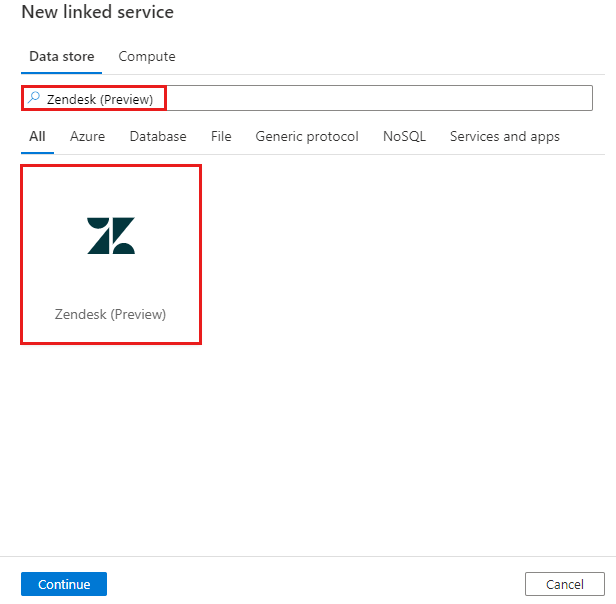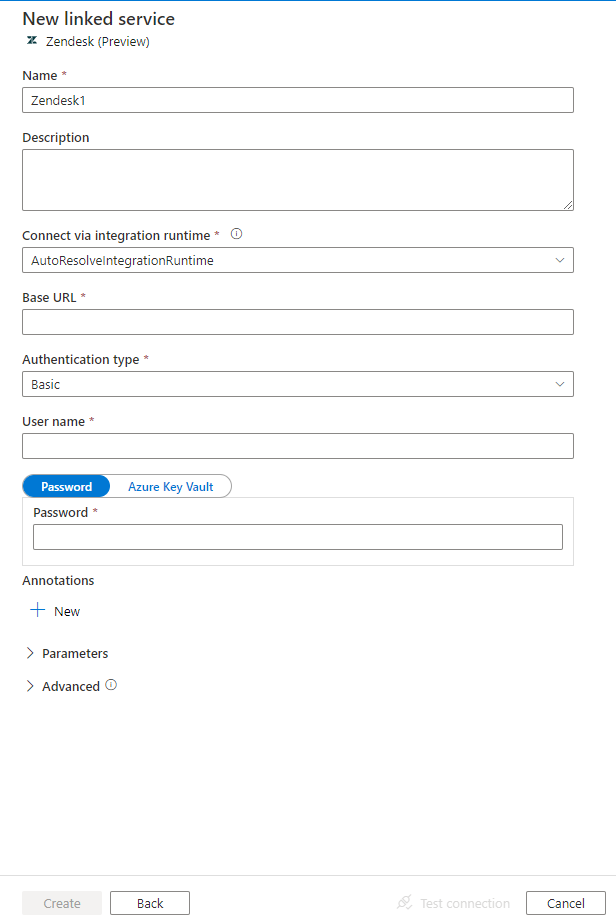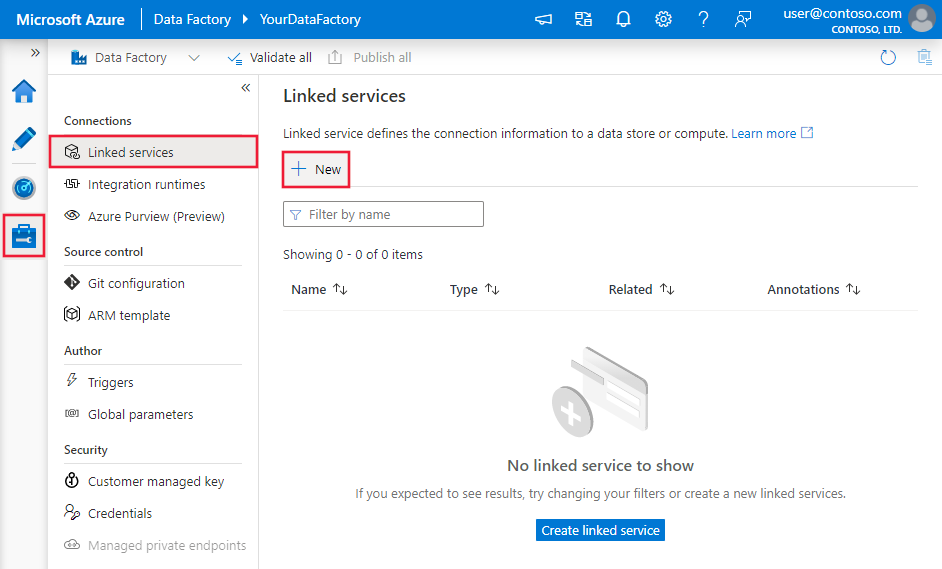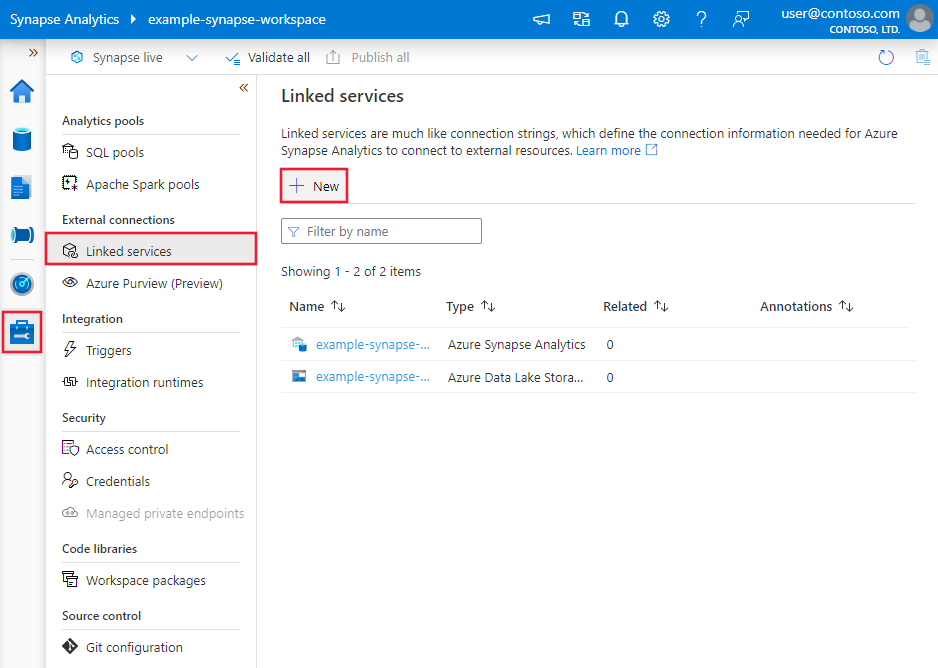Note
Access to this page requires authorization. You can try signing in or changing directories.
Access to this page requires authorization. You can try changing directories.
APPLIES TO:  Azure Data Factory
Azure Data Factory  Azure Synapse Analytics
Azure Synapse Analytics
This article outlines how to use Data Flow to transform data in Zendesk (Preview). To learn more, read the introductory article for Azure Data Factory or Azure Synapse Analytics.
Important
This connector is currently in preview. You can try it out and give us feedback. If you want to take a dependency on preview connectors in your solution, please contact Azure support.
Supported capabilities
This Zendesk connector is supported for the following capabilities:
| Supported capabilities | IR |
|---|---|
| Mapping data flow (source/-) | ① |
① Azure integration runtime ② Self-hosted integration runtime
For a list of data stores that are supported as sources/sinks, see the Supported data stores table.
Create a Zendesk linked service using UI
Use the following steps to create a Zendesk linked service in the Azure portal UI.
Browse to the Manage tab in your Azure Data Factory or Synapse workspace and select Linked Services, then select New:
Search for Zendesk (Preview) and select the Zendesk (Preview) connector.

Configure the service details, test the connection, and create the new linked service.

Connector configuration details
The following sections provide information about properties that are used to define Data Factory and Synapse pipeline entities specific to Zendesk.
Linked service properties
The following properties are supported for the Zendesk linked service:
| Property | Description | Required |
|---|---|---|
| type | The type property must be set to Zendesk. | Yes |
| url | The base URL of your Zendesk service. | Yes |
| authenticationType | Type of authentication used to connect to the Zendesk service. Allowed values are basic and token. Refer to corresponding sections below on more properties and examples respectively. | Yes |
Basic authentication
Set the authenticationType property to basic. In addition to the generic properties that are described in the preceding section, specify the following properties:
| Property | Description | Required |
|---|---|---|
| userName | The user name used to log in to Zendesk. | Yes |
| password | Specify a password for the user account you specified for the user name. Mark this field as SecureString to store it securely. Or, you can reference a secret stored in Azure Key Vault. | Yes |
Example:
{
"name": "ZendeskLinkedService",
"properties": {
"type": "Zendesk",
"typeProperties": {
"url": "<base url>",
"authenticationType": "basic",
"userName": "<user name>",
"password": {
"type": "SecureString",
"value": "<password>"
}
}
}
}
Token authentication
Set the authenticationType property to token. In addition to the generic properties that are described in the preceding section, specify the following properties:
| Property | Description | Required |
|---|---|---|
| apiToken | Specify an API token for the Zendesk. Mark this field as SecureString to store it securely. Or, you can reference a secret stored in Azure Key Vault. | Yes |
Example:
{
"name": "ZendeskLinkedService",
"properties": {
"type": "Zendesk",
"typeProperties": {
"url": "<base url>",
"authenticationType": "token",
"apiToken": {
"type": "SecureString",
"value": "<API token>"
}
}
}
}
Mapping data flow properties
When transforming data in mapping data flow, you can read tables from Zendesk. For more information, see the source transformation in mapping data flows. You can only use an inline dataset as source type.
Source transformation
The below table lists the properties supported by Zendesk source. You can edit these properties in the Source options tab.
| Name | Description | Required | Allowed values | Data flow script property |
|---|---|---|---|---|
| Entity | The logical name of the entity in Zendesk. | Yes when use inline mode | activitiesgroup_membershipsgroupsorganizationsrequests satisfaction_ratingssessionstagstargetsticket_auditsticket_fieldsticket_metricsticketstriggersusersviews |
entity |
Zendesk source script examples
source(allowSchemaDrift: true,
validateSchema: false,
store: 'zendesk',
format: 'rest',
entity: 'tickets') ~> ZendeskSource
Related content
For a list of data stores supported as sources and sinks by the copy activity, see Supported data stores.

